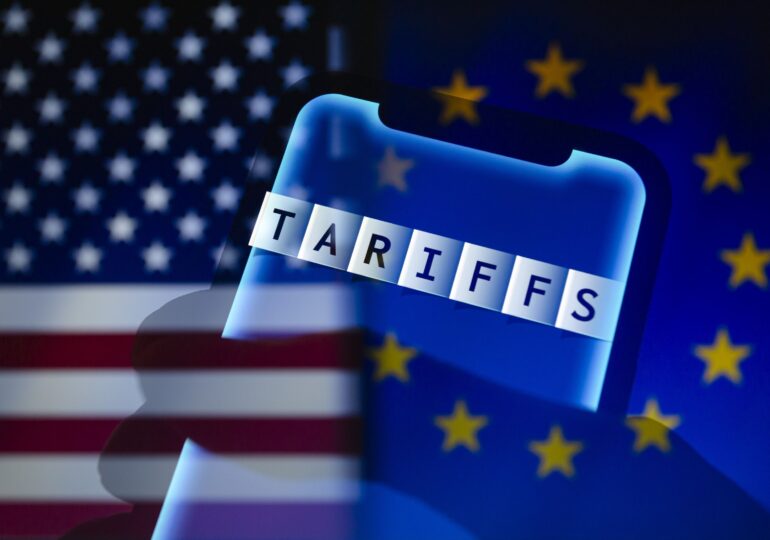EU representatives are set to meet this week to finalize a set of response measures in case no trade agreement is reached with the Trump administration, whose negotiating position on customs duties seems to have hardened ahead of the August 1 deadline.
The general preference is to continue negotiations with Washington, attempting to reach a negotiated solution to break the deadlock before the deadline.
However, sources close to this matter quoted by Bloomberg claim that no progress has been made after last week's discussions in Washington. Negotiations will continue over the next two weeks.
- French wine and cheese producers warn: US tariffs could heavily impact the agri-food industry
- Thousands of cars are stuck in EU ports due to Trump's tariffs. The Port of Antwerp is a huge car park
Currently, the US seems to want an almost universal tariff on goods imported from the EU, higher than 10% and with fewer exceptions, limited to aviation, some medical products and generic drugs, a range of spirits, and production equipment that the US needs, as mentioned by sources who wished to remain anonymous.
The two parties have also discussed a possible threshold for certain sectors, as well as quotas on steel and aluminum, as a way to protect supply chains from sources that over-supply with metals. Sources have warned that even if an agreement is reached, it will need to be signed by Trump, whose position is unclear.
Earlier this month, the American president sent a letter to the European Union warning that the EU could face tariffs of 30% on most of its exports, starting from August 1. Overall, the EU estimates that American tariffs could cover products worth 380 billion euros, approximately 70% of its exports to the US.
Prior to Trump's letter, the EU hoped to reach a framework agreement that would have allowed further discussions based on the idea of a universal 10% tariff on most of the EU's exports.
The EU has tried to secure larger exceptions than what the US was offering, as well as to protect the EU from future sectoral tariffs. Even though it is accepted that any future agreement will be asymmetrical in favor of the US, the EU will analyze the overall imbalance of any agreement before deciding whether to trigger any rebalancing measures, as previously revealed by Bloomberg.
The level of sacrifices that member states are willing to accept varies, and some countries are open to the idea of higher tariffs if it means obtaining sufficient exceptions, sources have disclosed.
As the chances of a positive outcome diminish and the deadline approaches, the European Union is expected to start preparing a response plan that would be swiftly implemented in case no agreement is reached, sources claim. However, any decision on retaliatory measures will require the political approval of the EU leaders, as the stakes are very high, the sources added.

